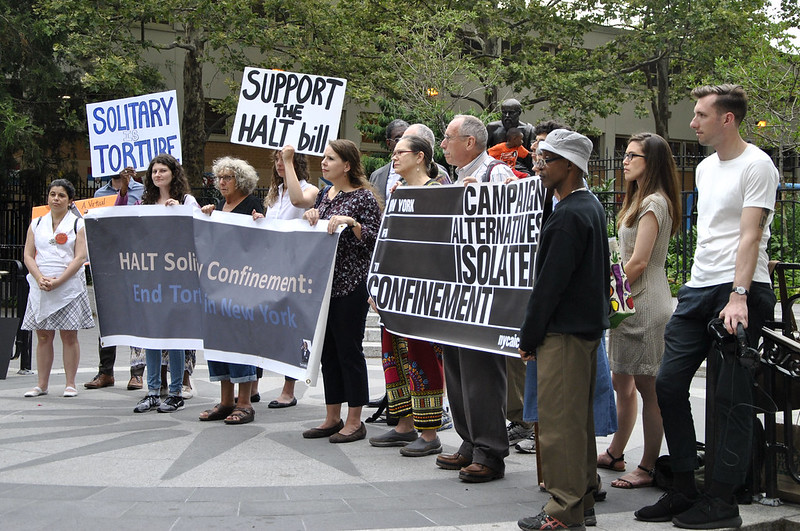
Background
As an American citizen and a historian of Islamic legal traditions, I have been thinking a great deal about the nexus between punishment and mercy in both contemporary Anglo-American criminal jurisprudence (as part of a secularized liberal democracy) and classical Islamic criminal jurisprudence. Partly on the basis of this reflection, I want to discuss the extent to which the opinions of pre-modern Muslim legal authorities on the issue of the just relationship between punishment and mercy can contribute to discussions on criminal justice reform in the United States. To be clear, the moral justification of punishing human beings is a neuralgic topic, one that requires deeply reflective and serious attention. It is necessary regardless of whether one accounts for capital, corporeal, or non-corporeal (e.g., prison) forms of punishment. Moreover, criminal justice issues are not only a U.S. problem. Legal systems in various Muslim-majority countries have not fared more justly (see for example, Tahir Wasti’s The Application of Islamic Criminal Law in Pakistan). But returning to the U.S. case, the question I have been asking myself is: What happens when criminal laws and their associated punishments appear to violate the very standards of justice a legal system is theoretically designed to uphold? The Eighth Amendment here in the U.S. explicitly prohibits the use of “cruel and unusual punishment.” But as an example, a felony conviction in the U.S. criminal justice system often comes with what I refer to as overreaching harms—consequences that are overly severe and go above and beyond the punishment itself (e.g., imprisonment).
The excessive nature of punishment in U.S. criminal laws is important for several reasons, one being that they have been instrumentalized to perpetuate a brutal race-based social and economic caste system designed to oppress African Americans and other people of color (Isabel Wilkerson’s Caste: The Origins of our Discontent). As Michelle Alexander notes in The New Jim Crow, the socio-economic control is nothing more than a reconfigured extension of Jim Crow laws of the late 19th and early 20th centuries. The clearest expression of this racist structure can be found in the mass incarceration of people of color. “No other country in the world imprisons so many of its racial or ethnic minorities [as the United States]” (Alexander, 8). Since the murder of George Floyd, more Americans than ever before have begun to acutely examine the legacy of the U.S. criminal justice system. By taking this deeper look, we have the space to not only see the ways in which overreaching harms have been baked into U.S. jurisprudence (read: modern and secular jurisprudence) to perpetuate injustices such as racial segregation, we also have the opportunity to explore possible ways in which faith-based legal traditions—that are frequently neglected—could actually have something to teach us.
Islamic Criminal Law: A Case Study
I begin with reference to the primary source of law according to Islamic jurisprudence: the Qur’ān. A verse commands flogging as punishment for unlawful sexual intercourse (zinā): “As for the woman and man who commit unlawful sexual intercourse, flog each of them 100 times and do not take into account any mercy…” (Q. 24:2). Several Muslim exegetes believed that the second provision, which appears to stipulate that no mercy can be extended to the offenders, categorically prohibits any alteration. For example, al-Ḍaḥḥāk (d. 724 CE) interprets “do not take into account any mercy” to mean that the fixed punishment of flogging cannot be vacated.[1] Another exegete, Muqātil (d. 767 CE), writes that the clause is a reference to the entire category of the fixed punishments and that they cannot be suspended.[2] For these two commentators (among others), Q. 24:2 seemingly indicates that the punishment cannot be dropped under any circumstances.
By contrast, various Muslim jurists were prepared to reconsider the punishment in certain situations based on what appear to be normative standards of morality and justice. Their positions were based on deliberations about the unintended consequences that could emerge from attempting an unqualified implementation of the flogging directive. One hypothetical case analyzed drew upon circumstances in which flogging could lead to the offender’s death, such as when they suffered from a potential physical comorbidity. Muḥammad al-Shaybānī (d. 805 CE) opined that in such cases the offender should be imprisoned until they physically recuperate.[3] Ibn ‘Alī b. al-Haddād (d. 1397 CE) wrote that when a sick person is flogged, they may well be enduring more harm than they are obligated to receive[4]—the implication of his opinion (and of al-Shaybānī’s) being that the person cannot be punished in the manner prescribed by the Qur’ān. In sum, these legal authorities were willing to take into account an overreaching harm. Although flogging is a divinely prescribed sanction, they found reasons for its mitigation.
Some Muslim jurists used a report about the Prophet Muḥammad according to which he ordered modifications to the form and number of lashes. Reportedly, a physically weak man was convicted of illicit sexual intercourse. The Prophet, in accordance with Q. 24:2, ordered that the man be flogged 100 times. Those who knew the offender protested the instruction based on information the Prophet did not yet possess. They told the Prophet that were the offender to be flogged 100 lashes, the latter would likely die because his emaciated body could not withstand the punishment. Upon hearing this, the Prophet amended the Qur’ānic directive by stating that the offender be struck once with a raceme of a palm tree in which there were 100 fruit-stalks and then released. To account for overreaching harm(s), the Prophet’s modification of the 100-flog mandate appeals to the spirit of a law rather than to its letter. The jurist al-Shāfi‘ī (d. 820 CE) used the report to take the position that the form and number of lashes must be modified when an offender is too physically weak to withstand flogging and the punishment’s implementation could lead to death (i.e., excessive harm unintended by the prescribed punishment).[5] In short, if there is any possibility of punitive overreach, the punishment must be changed.
Excessive Harm in the U.S. Criminal Justice System
The criminal justice system in the U.S. purports to dispense punishment equally to all members of society. However, behind this veneer of “blind” objectivity coupled with a theoretical prohibition of “cruel and unusual punishment,” lies a seemingly intentional disregard of any overreaching harm that results from the delivery of a punishment. For example, there is no shortage of studies documenting the severe psychological effects of solitary confinement. These effects include a heightened degree of anxiety, depression, anger, cognitive disturbances, perceptual distortions, and obsessive thoughts (Metzner and Fellner, “Solitary Confinement”). Confinement in isolation produces cognitive impairment and affective disturbances in perpetuity (Grassian, “Psychiatric Effects”). Yet despite the overwhelming evidence about both the short-term and the long-term consequences of confinement in isolation, most states continue to use it. Solitary confinement is a form of extra-judicial punishment. It causes psychological and physical damage entirely unaccounted for in the prisoner’s adjudicated sentence and in excess of the prescribed baseline punishment of group confinement.
For the criminal legal system to claim it is just, it has no choice but to be governed by principles of fairness that must attend to the real possibility of excessive harm.
Collateral consequences resulting from criminal convictions also illustrate, as a general matter, the ways in which punishments borne in the U.S. criminal justice system result in overreaching harms and, indeed, are debilitating. On October 14th, 2020, the Sentencing Project issued a publication according to which approximately 5.2 million former incarcerates would not be allowed to vote in the 2020 national election. Felony disenfranchisement, the inability to secure employment because of conviction, the ineligibility to receive student loans and accrued government benefits, among other things, represent symptoms of what can legitimately be viewed as an institutionalized penal infrastructure designed to facilitate harm that goes beyond the parameters of an offender’s adjudicated sentence.
An Exchange of Ideas?
What ideas from Muslim jurists might we draw upon when discussing possible ways to reform the U.S. criminal justice system in light of its normalized overreach of harms ensuing from punishments? Muslim legal authorities were, when faced merely with the potential for a punishment’s overreach, fully prepared to alter or vacate the sanction they understood to be divinely commanded. They were willing to do this despite the fact that the plain sense of the verse evidently mandates the punishment regardless of circumstances. The principle that appears to undergird the opinions of these jurists is that no criminal law can be construed as anything close to justice if it contravenes normative standards of fair treatment. The implication is that such a violation would compromise the moral standing of the entire legal system itself. It calls into question the legitimacy of its raison d’être: the just regulation of human behavior. For the criminal legal system to claim it is just, it has no choice but to be governed by principles of fairness that must attend to the real possibility of excessive harm.
The current U.S. criminal justice system punishes unreasonably. To borrow from Erin Kelly (The Limits of Blame, p. 168), it should be morally unacceptable for us to allow a system to hold a person responsible for their actions when the system’s actors themselves are deserving of blame for doing unjust things. One approach towards a more just system would be to implement a core principle that when there is clear evidence of overreaching harms resulting from a particular punishment, then it must be altered or abandoned. While the genesis of U.S. jurisprudence and Islamic jurisprudence have varied beginnings and are not grounded in the same ethical or theological commitments or socio-historical contexts (e.g., Muslim jurists were not operating within a system that enslaved Black people through laws and policies), there are possible ways in which a meaningful exchange of ideas can take place that allows us to learn something from a tradition that is not our own.
[1] al-Ḍaḥḥāk b. Muzāḥim al-Hilālī, Tafsīr al-Ḍaḥḥāk, ed. Muḥammad Shurkī Aḥmad al-Zāwītī, 2 vols. (Cairo: Dār al-Salām, 1999), 2:607, no. 1,716.
[2] Muqātil b. Sulaymān, Tafsīr Muqātil b. Sulaymān, ed. ‘Abd Allāh Maḥmūd Shihāta, 5 vols. (Beirut: Mu’assasat al-Tārīkh al-‘Arabī, 2002), 3:182.
[3] Muḥammad b. al-Ḥasan al-Shaybānī, al-Aṣl, ed. Mehmet Boynukalın, 13 vols. (Beirut: Dār Ibn Ḥazm, 2012), 7:187.
[4] Ibn ‘Alī b. Muḥammad b. al-Haddād, al-Jawhar al-nayyira sharḥ mukhtaṣar al-Qudūrī fī furū‘a al-ḥanafiyya, ed. Ilyās Qablān, 2 vols. (Beirut: Dār al-Kutub al-‘Ilmiyya, 2006), 2:380.
[5] Muḥammad b. Idrīs al-Shāfi‘ī, al-Umm, ed. Rif‘at Fawzī ‘Abd al-Muṭṭalib, 11 vols. (Alexandria: Dār al-Wafā’, 2001), 7:344.

